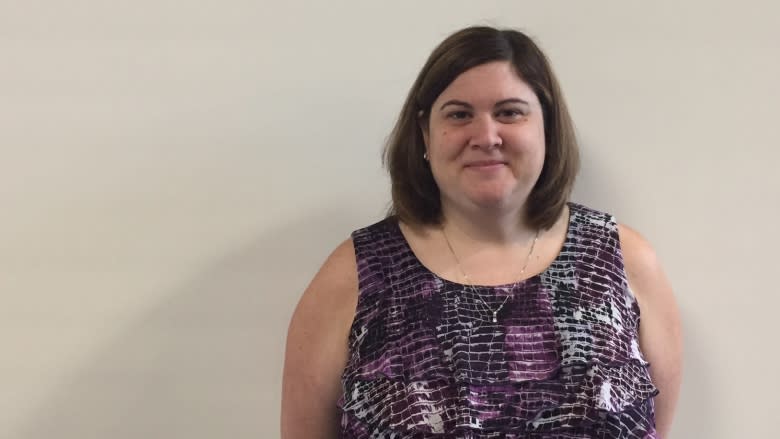Moncton doctor says poor palliative care led patient to seek suicide help

Palliative care is "a very low priority" for the New Brunswick government, and patients and their families are continuing to suffer, according to Dr. Pamela Mansfield.
The palliative care physician said health care workers across the province are frustrated, waiting for a strategy to be implemented.
"We aren't able to provide the level of care we know we should ... it's especially disheartening to see the families and the patients and what they have to go through," Mansfield said.
Mansfield said a patient recently had to wait a month to see her, and by the time she spoke to him he was asking for doctor-assisted suicide.
"It broke my heart to hear that," Mansfield said.
"We had been working very closely with the family doctor in this particular scenario and the family doctor said, 'I've done all I can do now. We need your help.' But just with the resources that we have it took some time for that to happen. ... When you're dying a month is a long time to wait."
CBC News contacted the Department of Health to find out where plans for a palliative care strategy stand, but there has been no response.
N.B. skips conference
An annual conference, organized by the New Brunswick Hospice Palliative Care Association, begins Thursday in Moncton.
Dominic LeBlanc, New Brunswick MP and federal fisheries minister, will speak at the conference on Friday, and Mansfield is hoping he will have an update about increased funding for palliative care and home care for the province as part of the new health accord with Ottawa.
"We have not heard any assurances about how much money palliative care will get or how that money will be spent," Mansfield said. "I would hope [LeBlanc] would be able to talk with his counterparts here in the province and try to get things rolling."
Mansfield said no one from the provincial government accepted an invitation to attend the conference, and she worries the issue has fallen off the political radar.
"The people who suffer are the family members and patients who are going through that, and they often do not have a strong voice," she said.
"They are exhausted after going through the process and they don't have a strong voice to stand up and say, 'This isn't right, this should have been better.'"
Good palliative care saves money
Mansfield said palliative care in both Nova Scotia and Prince Edward is better than it is in New Brunswick, with specialized teams in place to help patients and their families and better home care.
She recently visited the south shore of Nova Scotia, where 60 per cent of patients are able to die at home, compared with only 15 per cent in the Moncton area.
"That's a striking difference and it's because of the resources that they have in the community to support the patients and their families."
Besides the improvement in quality of life, Mansfield said, there are huge savings for governments that keep palliative patients out of hospital and allow them to remain at home or in residential hospices.
"We know that there's better satisfaction with the overall process of dying if there's a palliative care approach, but the cost savings are astronomical and if I was the health minister or the finance minister, I would think I'd be implementing this now."
Hospitals congested
Mansfield said one of the biggest side benefits of a palliative care plan that includes improved home care and hospice care would be moving patients out of "really congested hospitals."
She said a story this week from Nova Scotia about a man who died in a hospital hallway resonated with her.
"I'd like to say that doesn't happen here but I'd be lying," Mansfield said.
"We have people in hallways all the time, we have people who die in four-bed wards and it's really not the right place — and you could move those people out to have better care, more cost-effective care and at the same time make room for the people who do need acute hospital care."
Mansfield said research shows a palliative care program could save New Brunswick's health-care system at least $7,000 per patient.
"If the province is really looking at moving forward, putting the patient first, working on the home first program — palliative care should be an integral part of that and right now we feel like we're stuck in a corner somewhere and being ignored."

